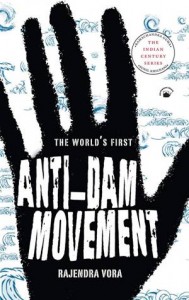During the time of contemporary India?s most famous anti-dam movement, the Narmada Bachao Andolan, a professor of politics in Pune, Rajendra Vora, wrote a study in Marathi of that movement?s forgotten predecessor. Back in the 1920s, the peasants of Mulshi Peta, near Pune, had protested against the construction of a dam being built with government support by the industrial house of the Tatas. The struggle was led by Pandurang Mahadev ('Senapati') Bapat, a socialist and nationalist who had been educated in England. Like Medha Patkar of the Narmada Andolan, Bapat was a leader of much charisma and courage. Like her, he identified completely with the peasants who fought to save their ancestral lands from being submerged.In 1995, Rajendra Vora's book on the Mulshi Satyagraha won the prestigious G.H. Deshmukh award of the Pune Sahitya Parishad. Vora was then persuaded to write an English version. This is that version: it is less a straight translation than a text extensively rewritten for an English-reading audience, including a chapter which links contemporary anti-dam protests with ideas and activities first expressed in the 1920s.This is a study that will engage a wide range of audiences? those interested in Maharashtrian history, in the history of Indian nationalism, in the politics of the environment, in the sociology of peasant protest, and in alternative strategies of economic development.RAJENDRA VORA (19462008) was Lokmanaya Tilak Professor of Political Science at the University of Pune, from which position he retired in September 2006. He was deeply concerned and connected with political and social processes, and the direction he gave to research in this area has influenced two generations of students and researchers. He co-edited Indian Democracy: Meanings and Practices (2004) as well as an encyclopaedic dictionary of political science in Marathi, Rajyashastra Kosh (1987).
World’s first anti-dam movement, the
Sobre
Talvez você seja redirecionado para outro site












